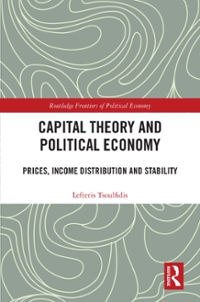Question
You are planning to invest in fine wine. Each case costs $100 (at time 0), and you know from experience that the (future) value of
You are planning to invest in fine wine. Each case costs $100 (at time 0), and you know from experience that the (future) value of a case of wine held for t years is 100t for t 1. (Suppose that the value is 100 for 0 Let's consider the problem that is the continuous-time analog to the above discrete-time problem. This is perhaps a more realistic problem. Suppose interest is compounded continuously instead of discretely. You may again choose how many years to hold the case of wine before selling it - but now suppose you can sell at any time, not just at the integer years. How many years should you hold the case of wine before selling it? How much money will you receive for the case of wine at the time of its sale? What is the net present value of that investment? Suppose we are still in the continuous-time model. Immediately after you purchase the case of wine, still at time t=0, a fellow wine enthusiast offers to buy your case of wine for $130. (If you sell your case, you won't have an opportunity to buy another for yourself.) How would your answers qualitatively change if the interest rate were only 5 percent? Would you still buy the wine? Would you keep it for longer or shorter?
Step by Step Solution
There are 3 Steps involved in it
Step: 1

Get Instant Access to Expert-Tailored Solutions
See step-by-step solutions with expert insights and AI powered tools for academic success
Step: 2

Step: 3

Ace Your Homework with AI
Get the answers you need in no time with our AI-driven, step-by-step assistance
Get Started


